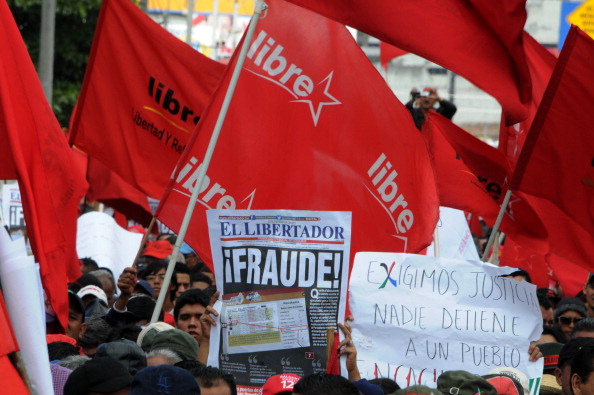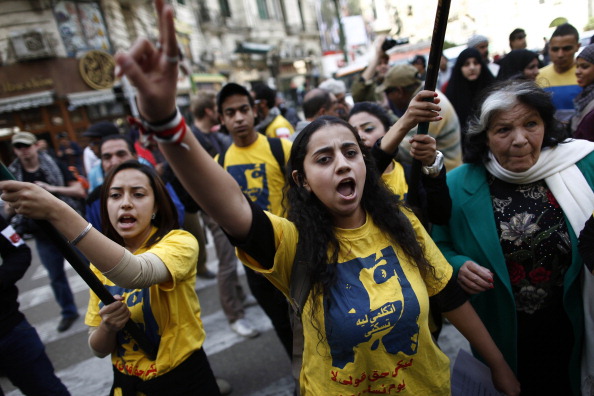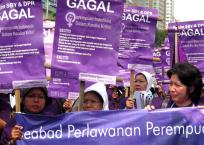
Supporters of Honduran presidential candidate for the LIBRE party, Xiomara Castro hold flags and a sign reading “We demand justice. Nobody stops the people” (Photo Credit: Orlando Sierra/AFP/Getty Images).
By Stacy Suh, Member Women’s Rights Coordination Group
As I write, the outcome of the November 24 presidential elections in Honduras is still being contested. There were eight candidates to the presidency, out of which two have been expressing concerns on the official results provided by the Electoral Tribunal and respective complains have been filed. Regardless of the eventual outcome of these legal challenges, Amnesty International is still calling upon the next president to commit to protecting human rights, as outlined in an open letter to all candidates.




